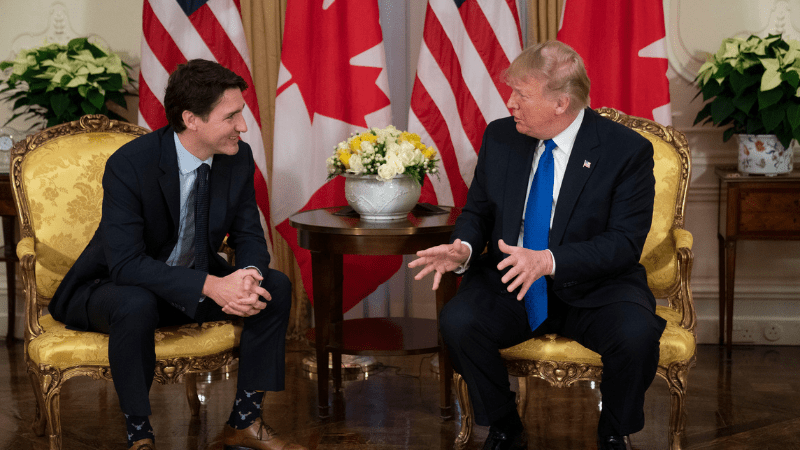This article originally appeared in the Toronto Star.
By Charles Burton, February 26, 2024
Donald Trump got the headlines he wanted by inciting Russia to do “whatever the hell they want” to NATO allies who are in arrears (even though most members, including Canada, have actually raised defence spending to record levels).
But if Trump’s baiting startled the world’s largest peacetime military alliance, here in Canada anxiety about the U.S. election was already rising.
Few Canadians harbour illusions that a Trump administration would value relations with its longtime ally next door. Trump was the president who demanded the North American Free Trade Agreement be renegotiated, then promptly slapped painful tariffs on Canadian steel and aluminum imports.
If he regains the presidency, Trump’s plan to make America great again includes 10 per cent tariffs on all imports. Canada — America’s third-largest supplier — wouldn’t be getting a bye.
Replacing reciprocal free trade with a protectionist wall would inflict pain in all directions, including for American consumers, who end up paying more for many goods. For Canada’s export-driven economy, the fallout could mean unemployment for thousands of households, devalued stock markets (including the nest eggs of millions of retirees), and internal regional infighting that makes the 2022 truckers’ convoy look like a high school debate.
Concerns about Trump go beyond fiscal. With the world’s second-largest land mass but a small tax base (just over one-tenth the population of the U.S.) Canada cannot realistically defend its massive territory without the collaborative assurance of a united NATO. Losing America’s resources and leadership would be devastating to the alliance’s ability to defend its member nations.
Nullifying NATO would imperil the stabilizing mass of global democracies, removing a deterrent for further European invasions by Russian President Vladimir Putin and threatening the remaining footing of a rules-based international order that people in the West assume is as natural as gravity.
Trump wants to focus economic measures and military might on bringing China to heel. He talks of a showdown trade war with massive 60-per cent tariffs on all Chinese imports. But economists see such a folly spinning out of anyone’s control, triggering the dominoes of a global financial crisis on a scale never before seen.
While Trump plays with fire, pushing traditional U.S. allies to have huge misgivings about Washington’s indifference to democracy, China would quickly exploit this period of confusion, splintering democratic coalitions and accelerating its realignment of world order, eclipsing America as the undisputed superpower.
It’s easy to connect the dots. Beijing and Moscow will happily watch Trumpian unilateralism erode the authority of the UN, WTO and other institutions based on liberal democratic justice. Trump’s boast that he could end the war in Ukraine in 24 hours obviously means conceding territory to Russia.
As for protecting Taiwan, Beijing knows that Trump is a transactional wheeler dealer, making decisions based on self-interest. As China’s spokesman on Taiwan put it, “The U.S. will always pursue America first, and Taiwan can change from a chess piece to a discarded chess piece at any time.”
At the outset of his presidency, a host of moderate Republican voices had Trump’s ear. But he fired them, one by one. If there is a second round, he will be surrounded from day one by sycophants who make no effort to deter him from settling scores domestically and globally.
Canada will be happy to maintain its historic U.S. friendship, whoever is in the White House. Choosing sides in another country’s election is a mug’s game; Ottawa must work in good faith with whoever Americans elect.
But if the U.S. forsakes its longtime allies, Canada’s leaders will need to take responsibility for our own interests, seriously funding national defence and security, and working with European and Indo-Pacific partners to broaden trade and military coalitions that offset the challenges of China, Russia and Iran.
If the old order is fading, Canada needs to remember the values on which it was built, and which would be vital in weathering any future economic and geostrategic storm.
Charles Burton is a senior fellow at the Macdonald-Laurier Institute in Ottawa; non-resident senior fellow of the European Values Center for Security Policy in Prague; former diplomat at Canada’s embassy in Beijing; professor of political science






